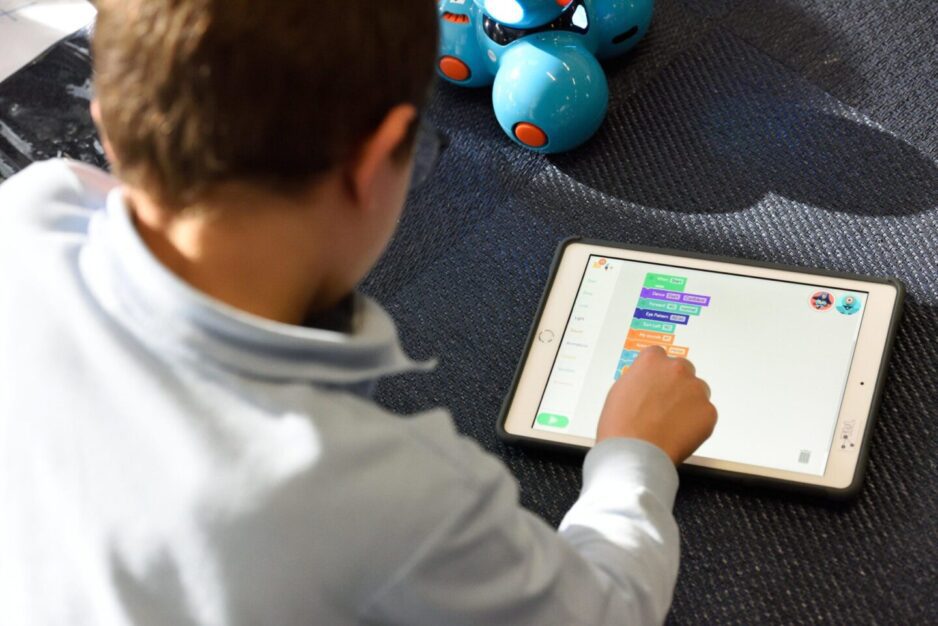Table of content
Do you remember childhood days, going outside for some fresh air or a picnic anytime you had free time? For the children of today, that has largely changed. When boredom hits, their norm is playing a game on a device, scrolling through content, or watching videos. As adults, we know the downside of technology and can take a moment to step back. But for children who have been using screens for as long as they can remember, this might be all they know. As they’re still developing, they’ll continue to want more screen time for that hit of dopamine.
Understanding the Dangers: Why Excessive Screen Time is Harmful
Excessive screen time can have several detrimental effects on children's health and development. Areas impacted include:
Increased Exposure to EMF Radiation
Electromagnetic Field (EMF) radiation is a type of energy emitted by electronic devices. When children experience constant, close proximity to these devices, they can face significant exposure to EMFs. Many recent studies suggest a link between long-term, high-level EMF exposure and health issues such as sleep disturbances, headaches, and even certain types of cancer.
As screen time increases, so does exposure to EMF radiation. High screen time correlates with increased EMF exposure, which can have various health implications for children.

Image Source: Pexels
Sleep Quality and Hormone Production
Using technology for long periods of time can negatively affect children's sleep. The EMF radiation emitted by devices can interfere with the production of melatonin, a hormone that regulates sleep. Excessive screen time can lead to irregular sleep patterns, which have been linked to an increased risk of obesity. Poor sleep can exacerbate issues with attention, behavior, and overall well-being.
Obesity and Physical Health
Excessive screen time significantly reduces the amount of time children spend running, playing, and exercising. Over time, this can contribute to obesity. The lack of physical activity combined with irregular sleep patterns can affect a child's weight, and obesity in children can lead to numerous health problems.
Emotional and Social Development
Children who spend excessive time on screens may struggle with social emotional development. The interactions manufactured by digital devices can make it challenging for children to engage in face-to-face conversations. They may also miss out on critical social cues and skills necessary for healthy relationships. Excessive screen time has been linked to increased anxiety and depression in children, especially when they are exposed to social media at a young age.
Academic and Cognitive Impairments
Research has shown that excessive screen time can lead to the thinning of the brain's cortex, which impairs academic performance, attention, and creative thinking. With children still in critical stages of brain development, this is especially concerning. Limiting screen time can help improve focus and brain function, giving children a better chance to succeed academically.

Image Source: Pexels
Benefits of Reducing Screen Time
-
Improved mental health: A study conducted by the National Institutes of Health in the U.S . found that children who spent seven hours or more a day on screens were more than twice as likely to be diagnosed with depression or anxiety compared to those who used screens for an hour a day.
-
Better sleep: By reducing screen time, especially for bed, children can maintain more regular sleep schedules and reduce blue light exposure. This also limits EMF exposure which can disrupt the body’s production of melatonin.
-
Reduced exposure to EMF radiation: Screen time and EMF exposure go hand-in-hand. By reducing screen time, a child’s exposure to EMFs is significantly lessened. Since eliminating screen time altogether is not always realistic, parents can mitigate their children’s risk of harmful effects from EMF exposure by equipping them with the latest in EMF protection technology, like the Lifetune One which can be placed directly on their device.
- Better physical health: Encouraging activities that do not involve screens, such as outdoor play, sports, and hobbies, can help improve physical health. These activities promote better physical fitness, coordination, and overall well-being. They also provide opportunities for children to develop social skills and build friendships
Practical Strategies for Managing Your Child’s Screen Time
Managing and reducing screen time doesn’t have to be a fight, and it doesn’t have to involve drastic changes overnight. Starting small with manageable, practical steps like the ones below can help children ease into new routines involving less screen time.
Set Boundaries
Establish clear boundaries for screen use. For instance, come up with a family plan for no screens during meals or no screens an hour before bed. This helps create a routine that shifts children’s focus to other activities over screen time and encourages healthier habits.
Create Phone-Free Zones
Designate certain areas in your home as phone-free zones, such as the dining room or bedrooms. This can help children and adults follow through with the boundaries agreed upon as a family.
Replace Screen Time with Other Activities
Encourage activities that don’t involve screens. Read a book, go for a walk, or practice a hobby. Activities like playing board games, doing puzzles, or engaging in arts and crafts can also be fun alternatives to screen time and allow for bonding time as a family.
Lead by Example
Parents are their child's first teacher, and children often emulate their parents' behavior. By limiting your own screen time, you set a positive example for your children to follow. Show them the value of non-digital activities and spending quality time together as a family.

Image Source: Pexels
Embracing Digital Balance and Wellness
While technology has changed our lives for the better in many ways, it's crucial to maintain a healthy relationship with it. In moderation, technology can stimulate children's brains, provide educational opportunities, and offer entertainment. For parents, it can also offer valuable time to work, complete chores, or practice self-care.
Instead of abruptly cutting out screen time, gradually and consistently reduce the amount of time children are allowed to spend on their devices or in front of the TV. This allows for the family to adjust to any new routines, which can prove more sustainable in the long run.
Balancing digital life is essential for children's health and development. Reducing screen time is a simple and effective way to minimize EMF radiation exposure and promote healthier habits. By setting boundaries, creating phone-free zones, and replacing screen time with other activities, parents can foster a healthier relationship with technology for their children.



